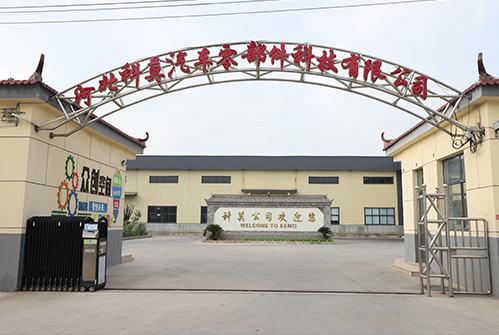Gasoline Fuel Line Hose Specifications and Installation Guidelines
Aug . 22, 2024 03:19 Back to list
Gasoline Fuel Line Hose Specifications and Installation Guidelines
Understanding Gas Fuel Line Hose A Critical Component in Fuel Systems
The gas fuel line hose plays a vital role in the efficient functioning of various automotive and industrial engines. As vehicles and machinery continue to advance technically, understanding the characteristics, types, and importance of fuel line hoses is essential for maintenance and performance optimization.
What is a Gas Fuel Line Hose?
A gas fuel line hose is designed specifically to transport fuel from the fuel tank to the engine. These hoses are engineered to withstand varying pressures, temperatures, and, importantly, the corrosive nature of gasoline and other fuels. Typically made from materials such as rubber or synthetic compounds, fuel line hoses are crafted to endure the rigors of both static and dynamic conditions.
Types of Fuel Line Hoses
There are primarily two types of hoses used for fuel lines standard rubber hoses and high-performance hoses. Standard rubber hoses are generally adequate for most everyday vehicles. They offer durability and flexibility, making them suitable for regular fuel types. However, they may degrade faster when exposed to ethanol-blended fuels or other modern fuel additives.
On the other hand, high-performance fuel line hoses are constructed from advanced materials that resist degradation and withstand higher pressures. These hoses are often found in racing vehicles and high-performance applications where fuel delivery needs are more stringent. Additionally, they can be lined with materials such as Teflon, which further enhances their resistance to fuel degradation.
gas fuel line hose

Importance of Quality
The quality of the gas fuel line hose is paramount. A damaged or low-quality fuel hose can lead to fuel leaks, which pose significant safety hazards, including fire risks. Moreover, fuel leaks can result in decreased engine performance and reduced fuel efficiency. That’s why it’s crucial to select hoses that conform to industry standards and specifications, ensuring they can handle the specific demands of the application.
Regular Inspection and Maintenance
Regular inspection of gas fuel line hoses should not be overlooked. Many experts recommend checking the hoses for signs of wear, such as cracks, bulges, or a soft feel. It’s also important to ensure that connection points are secure and that no fuel is seeping from joints. Routine checks can help mitigate the risk of leaks and allow for early detection of potential failures.
Furthermore, replacement of old or worn hoses is essential to maintain an effective fuel system. Many manufacturers provide guidelines on the lifespan of their hoses, but environmental factors and the type of fuel used can also impact longevity. If the vehicle experiences harsh conditions or uses aggressive fuel types, periodic replacements may be necessary even before the end of the recommended life cycle.
Conclusion
In summary, the gas fuel line hose is a critical component that significantly impacts vehicle safety and performance. Proper selection, inspection, and maintenance of these hoses can prevent costly repairs, enhance fuel efficiency, and ensure that engines operate as intended. Whether for everyday vehicles or specialized high-performance engines, understanding the nuances of fuel line hoses is essential for anyone involved in automotive maintenance or engineering. Investing in quality components and adhering to maintenance routines not only promotes safety but fosters the longevity of the entire fuel system. As technology advances, the importance of these critical components will only grow, making it essential for consumers and professionals alike to remain informed.
